The Maryland Zoo in Baltimore is excited to announce the hatching of two African penguin chicks — the first to hatch during the 2017-2018 breeding season at Penguin Coast. The chicks, which hatched on October 13 and 14, are being reared behind-the-scenes in the Penguin Conservation Center. One chick is being reared by its parents while the other is being hand-reared by the staff.
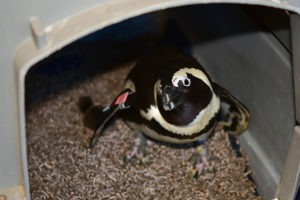
“This breeding season is off to a wonderful start,” said Jen Kottyan, avian collection and conservation manager. “As soon as the nest boxes were made available to the penguins, they began exhibiting breeding behaviors and claiming their nests. We are really excited about the prospects for this season, and these two are just the beginning.”
This breeding season at The Maryland Zoo could mark the first time that any zoo or aquarium in North America has hatched 1,000 African penguin chicks during the course of their history with the birds.
“Since we began working with African penguins in 1967, the Zoo has successfully hatched 989 penguin chicks, which includes the two we are announcing today,” continued Kottyan. “If our penguin pairs hatch eleven more healthy chicks this season, then we will hit the 1,000 mark. Spoiler alert — we have several more eggs incubating under their parents right now! We really have high hopes of hatching at least eleven chicks, if not more, this season.”
The Maryland Zoo has been a leader in African penguins for 50 years, winning the prestigious Edward H. Bean Award for the “African Penguin Long-term Propagation Program” from the AZA in 1996. The Zoo also has the largest colony of African penguins in North America, now with over 89 birds. “Our penguins are bred according to recommendations from the AZA African Penguin SSP which helps maintain their genetic diversity,” said Kottyan. “Many of the African penguins previously bred at the Zoo now inhabit zoo and aquarium exhibits around the world.”
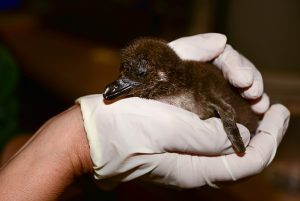
Breeding season for the African penguins at Penguin Coast begins in mid-September and lasts until the end of February, mimicking the spring/summer breeding season for these endangered birds in their native South Africa. Penguin chicks will hatch 38-42 days after the eggs are laid. Zoo keepers monitor development of the eggs by candling them about a week after they are laid to see if they are fertile and developing. The eggs are then placed back with the parents. “With African penguins both the male and the female take turns sitting on the eggs,” said Kottyan. “Once the eggs hatch, parents take turns caring for their offspring; they each protect, feed, and keep the chick warm for 2-3 days and then switch off.”
At Penguin Coast, chicks stay with their parents for about three weeks after they hatch and are fed regurgitated fish from their parents. During this time, zoo keepers and vets keep a close eye on the development of the chicks, weighing and measuring them daily for the first week to make sure that the parents are properly caring for each chick. When a chick is three-weeks-old, the keepers remove it from the nest, and start to teach the chick that they are the source of food. This step is critical as it will allow staff to provide long term care for the birds including daily feeding, regular health exams and both routine and emergency medical care.
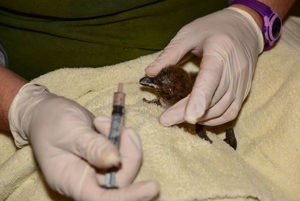
“While we prefer that the parents raise their chicks for the first three weeks, occasionally we do have to step in and hand-rear a chick which is not gaining enough weight,” continued Kottyan. “This year we are hand-rearing one of the chicks, which is living in a warm brooder box in the Penguin Conservation Center since it cannot regulate its’ own body temperature. The chick is fed a blend of krill, herring and water by the staff over a span of 12 hours each day, mimicking what the parents would be offering them. The chick is slowly gaining weight and we are cautiously optimistic that it will thrive under close care.”
“The chicks will stay behind-the-scenes in the Penguin Conservation Center for a few months until their juvenile feathers have grown in and they pass their swimming lessons,” concluded Kottyan. “African penguins are more suited to a temperate climate and so the weather will also play a factor in their public debut.”

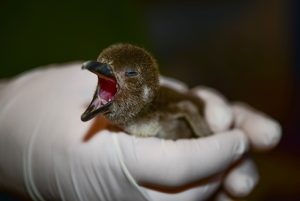

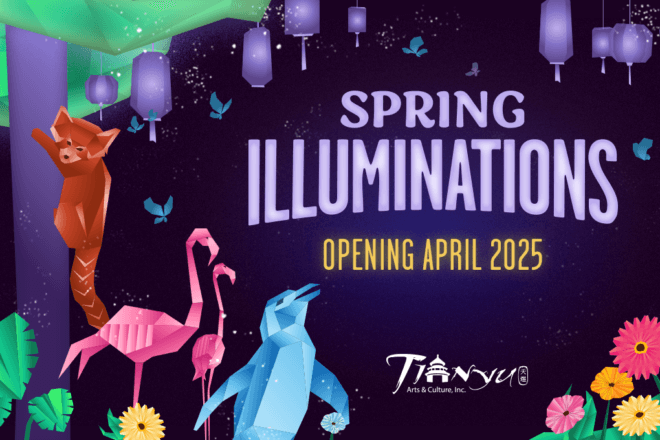
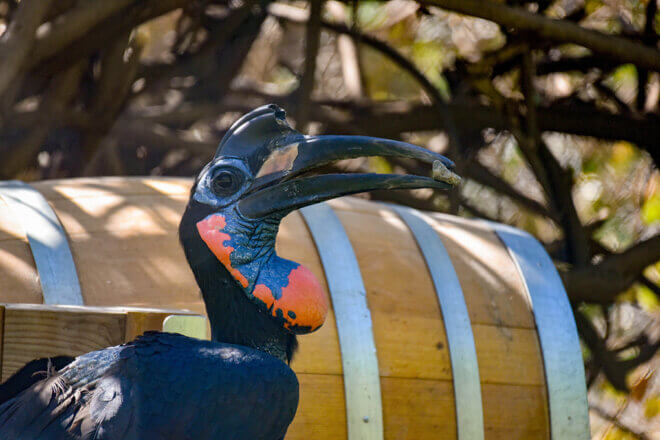
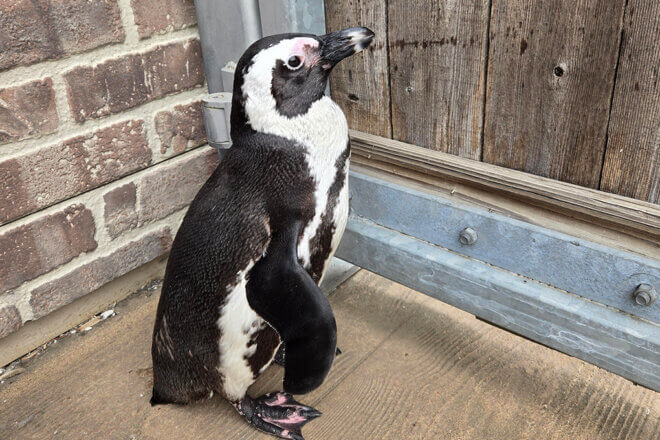
Share this article